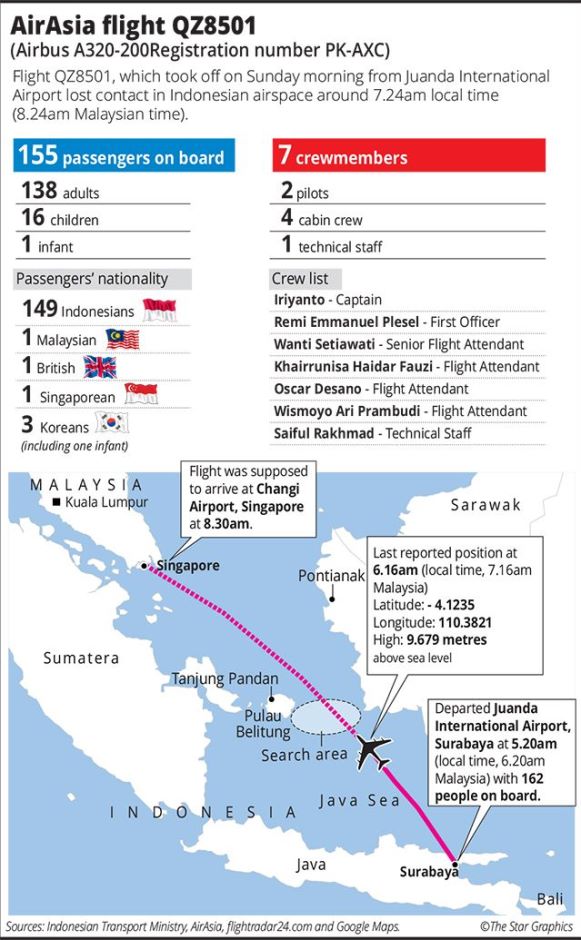Airbus in talks with regulator on ejectable 'black boxes'

MONTREAL/PARIS - Airbus has begun talks with a European regulator to make ejectable flight recorders available on its two largest models, the A380 and the new A350, potentially making them the first commercial planes to use the technology.
The European company said that further ahead it could also expand the use of ejectable recorders, which combine voice and data recordings, to new versions of its A330 and A320 jets.
The talks with the European Aviation Safety Agency (EASA) come as global aviation authorities consider recommending the devices to make it easier to recover evidence in cases such as the Dec. 28 crash of an AirAsia jet, whose data recorder was recovered on Monday but whose voice recorder is still missing.
Used in military planes for decades, ejectable or"deployable" recorders separate from the tail during a crash and float, emitting a satellite distress signal. "Airbus is working with EASA ... and other stakeholders to advance the approval of such a solution industry-wide," an Airbus spokesman said, adding there was no indication when the devices might be in use.
"In the future, applicability for our other aircraft products could be likewise considered, but presently we have decided to focus on the A350 and A380," he added.
EASA declined to comment.
Recommended by investigators after an Air France A330 jet crashed in 2009, ejectable recorders are gaining support at the UN's International Civil Aviation Organisation (ICAO).
A proposal recommending that new commercial aircraft certified after 2016 be equipped with them is to be heard by ICAO's Air Navigation Commission this month.
If approved, following a three-month consultation among 191 member states, it would likely appear in a new package of ICAO standards in 2016 and could come into force from around 2021. ICAO's standards are not always implemented by all members.
The move could benefit existing military suppliers including Finmeccanica's DRS Technologies, which is pushing for ejectable black boxes in commercial aircraft.
However, not all countries appear ready to back the technology, which is seen as only one way of recovering evidence on crashes over water. Others include rolling out lower-frequency locator beacons, under an already approved ICAO standard that would make black boxes easier to find.
Some officials fear relying solely on ejectable flight recorders would take attention and resources away from the search for deep-water wreckage and bodies that can also help solve air crashes and ease the suffering of families.
Boeing has taken the opposite stance over the use of deployable recorders, arguing the majority of its black boxes are recovered within 30 days and citing instances where the alternative recorders have failed on military aircraft.
